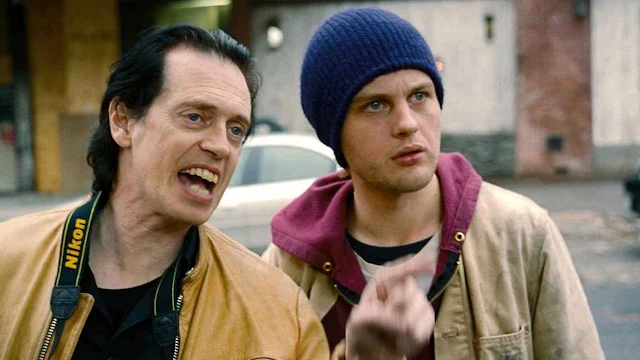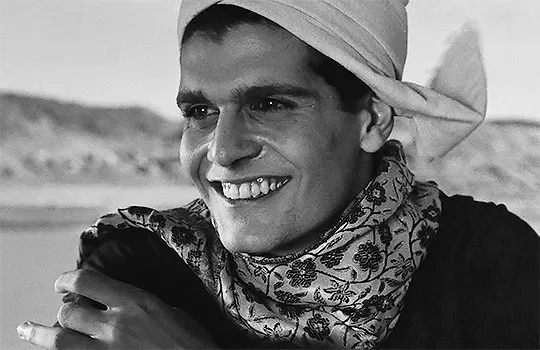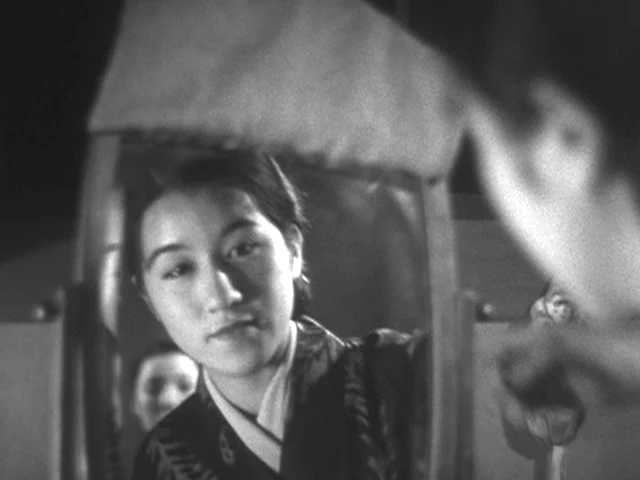 |
| Omar Sharif and Maryam Fakhruddin in The Devil of the Desert |
Cast: Omar Sharif, Maryam Fakhruddin, Lola Sedki, Tawfik El Dekn, Hamdy Gheith, Abdelghani Kamar, Salah Nazmi. Screenplay: Youssef Chahine, Hussein El-Mohandess. Cinematography: Alevise Orfanelli, Bruno Salvi. Art direction: Maher Abdel Nour, Hussein Helmy, Abdel Mohem Shokry. Music: Fouad El-Zahry.
In The Devil of the Desert (aka Devil of the Sahara or Shaytan Al-Sahra), Omar Sharif plays Essam, a masked avenger not unlike Zorro, except that instead of leaving the letter Z as his calling card, he leaves a twisted palm frond -- or as the subtitles call it, a "knitted frond," a phrase that elicited puzzled amusement every time I saw it. This frond is also a way of communicating his whereabouts to his followers, chief among them the "gypsy"* Shaden (Lola Sedki). But it's only one of many things that puzzled and amused me about Youssef Chahine's movie. Basically, it's a lively romp, an adventure movie that could have played in the Saturday matinees of my childhood. Essam even has a comic sidekick, and he swashbuckles his way through the plot twists while trying to decide between the sultry Shaden and the lovely Dalal (Maryam Fakhruddin). Unfortunately, it needed a better fight choreographer -- Sharif sometimes seems to buckle when he should swash. It also suffers from clumsy editing, a muddy soundtrack, and a few too many unnecessary scenes, including three musical numbers. So much is stuffed into its 110-minute run time that it's a surprise when it ends in a breathless rush. It left me feeling that Chahine was bored with the film and wanted to get on to something better.
*Many Romani consider "gypsy" an ethnic slur. It was derived from the fact that their people were once thought to be descended from an exiled Egyptian tribe. I use it here because it's the way the subtitles to The Devil of the Desert translate it, and being ignorant of Arabic, I don't know what word is used in the film.








